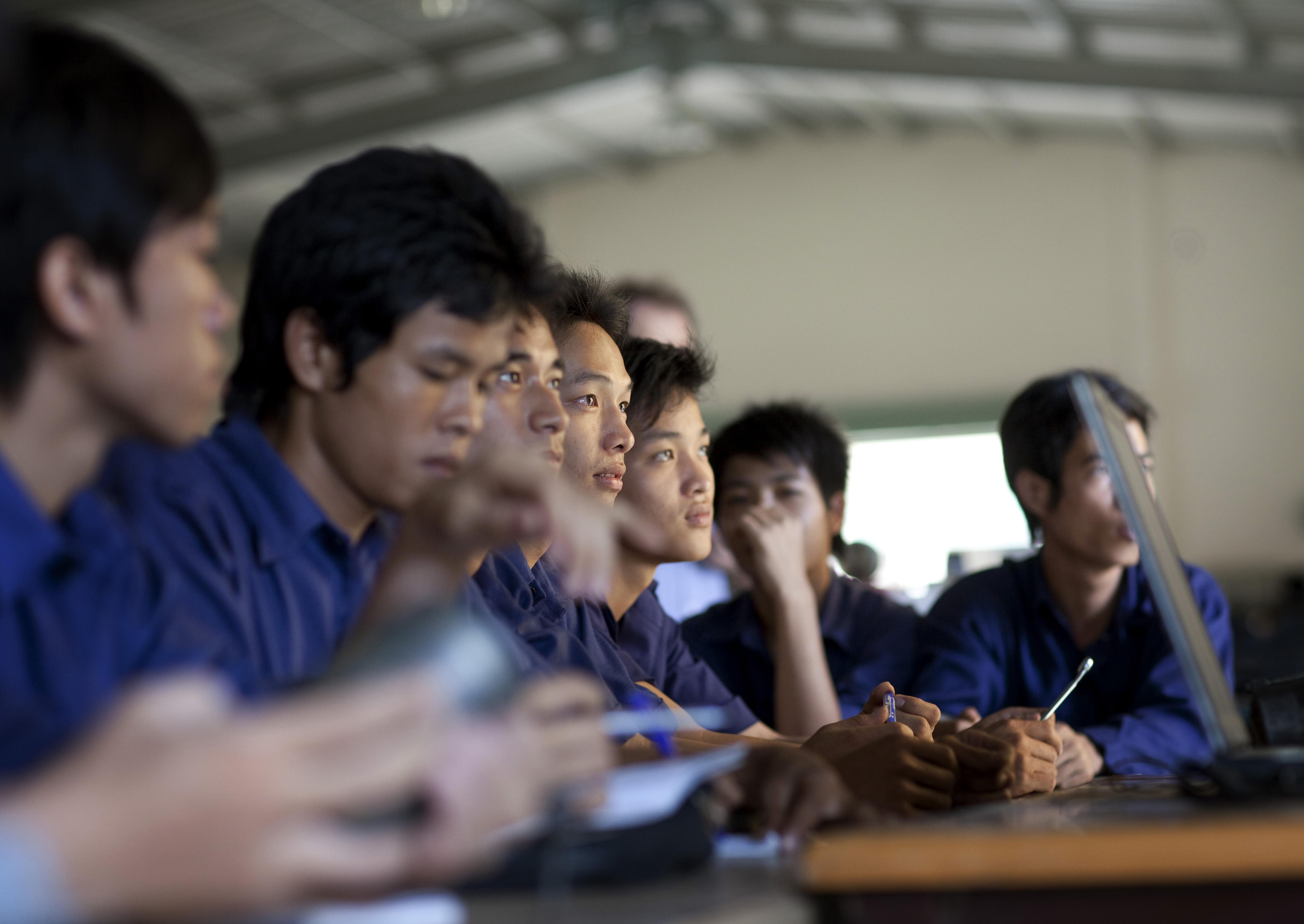Apprentices in the welding workshop at a vocational school in Ho Chi Minh City (Saigon), Viet Nam
Copyright© Thomas Köhler/photothek.net
Core area “Sustainable economic development, training and employment” Qualified skilled workers for a viable and sustainable economy
Technical and vocational education and training (TVET)
Viet Nam wants to develop labour market mechanisms and skills for a green, climate-neutral, digital transformation of the economy. So far, however, only a small proportion of all workers in Viet Nam have completed formal vocational training. Even those young people who have undergone vocational training usually do not meet the requirements of the rapidly changing world of work, which is becoming more and more international.
On behalf of the BMZ, GIZ is assisting Vietnamese partners in developing a relevant, efficient and effective vocational training system. German activities include policy advice regarding legal and administrative reforms, strategic advice on vocational training and the labour market, and pilot activities on labour market policy and development-oriented labour migration.
The focus of the support is on improving the capacity and equipment of vocational schools, modernising vocational training and introducing digital technology in the training system. The programme is putting special emphasis on environment- and climate-related occupations that will be important in the future.
Vocational training institutes are receiving advice on how to develop modern training courses in line with international standards, and training programmes are being developed and implemented. There is also engagement with the private sector so as to include it in these efforts.
Moreover, the BMZ is supporting public-private partnerships with international enterprises such as Siemens, Bosch, Schneider Electric and Festo Didactic. One important aspect of these efforts is to provide targeted support to training for women and people with disabilities. Under Financial Cooperation, the BMZ is supporting the expansion and modernisation of the Vocational College of Machinery and Irrigation in Dong Nai with a view to turning it into a competency centre for green vocational education.
Sustainable economic development
Climate action and environmental protection and the digital transformation bring both opportunities and challenges for Viet Nam's economy. The Vietnamese government is trying to achieve environmentally and socially sound development for the country.
The BMZ is assisting the government in developing a sustainable, just economic development model, suitable financing instruments, and labour and social policies for a green, climate-neutral, digital transformation of the economy.
Germany is providing advice to Viet Nam's Finance Ministry on how to optimise public financial management, make the budget more transparent, revise its (digital) tools for sustainable financial policies, and increase the use of such tools. In the private sector, support focuses on introducing circular economy models and establishing sustainable supply chains. By fostering start-ups' digital solutions and innovation, the programme of cooperation is making an important contribution towards the country's transition to a green and digital economy.
As at: 19/01/2024
